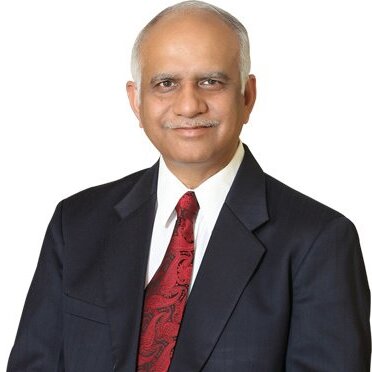Pacemaker vs. Implantable Cardioverter Defibrillator (ICD)

What is a Pacemaker?
Before delving into ICD vs pacemaker, one should know what these devices do. A pacemaker regulates cardiac rhythm. It often treats abnormal heartbeats causing exhaustion, dizziness, and, in severe cases, heart failure. It is primarily employed for patients suffering from arrhythmia, i.e., bradycardia (decreased cardiac rate) or tachycardia (increased heart activity).
It sends electrical impulses to the heart muscles for contraction and cardiac synchronisation. The equipment is essential for patients with a damaged natural pacemaking mechanism. Such issues arise due to ageing, heart disease, or other cardiac disorders.
Here are some key pointers about pacemakers for better understanding
- Function: It regulates the rhythm of the heart by sending electrical signals to the cardiac muscles.
- Implantation: Typically, the device is inserted under the skin in the chest area, with leads connecting to the heart chambers.
- Types: These are leadless, single, dual-chamber, or biventricular. Each type addresses a distinct cardiac condition.
- Sensing and Responding: Modern pacemakers can detect and respond to the normal electrical activity of the heart and modify it accordingly.
- Battery Life: The device is powered by batteries with varying lifespans, necessitating periodic replacements.


What is an Implantable Cardioverter Defibrillator?
An Implantable Cardioverter Defibrillator (ICD) is a complex medical device that focuses on cardiac rhythmic activity. Often suggested for people who are either at risk of or recovering from cardiac arrest. Prominent causes of the same include ventricular fibrillation (irregular heartbeat in the lower chamber) or tachycardia (heart rate over 100 beats per minute).
The tool is surgically placed beneath the skin, around the collarbone. It is linked to the heart by one or more leads. The instrument consistently tracks cardiovascular activity, and if an aberrant rhythm is detected, it administers an electrical shock to restore a regular pulse. This life-saving technique is effective in avoiding sudden cardiac death. The key pointers to know about ICDs are:
- Life-saving Functionality: It can detect and treat potentially severe cardiac arrest. They administer precisely timed electrical shocks to restore the normal rhythm.
- Continuous Monitoring: These devices enable constant regulation of cardiac activity, allowing for fast intervention in the event of anomalies.
- Dual Capability: Some ICDs also serve as pacemakers, ensuring that the heart maintains appropriate activity.
- Battery-Powered: Defibrillators are powered by batteries that must be replaced periodically. This requires patients to undergo a minor surgical procedure to replace the power source.
What is the Difference Between a Pacemaker and a Defibrillator?
Both implantable devices are designed to regulate heart rhythm. However, they serve distinct purposes. The table showing the difference between pacemaker and defibrillator in function and appearance is below for a clear understanding.
Parameters | Implantable Cardioverter Defibrillator (ICD) | Pacemaker |
Primary Function | Monitors and corrects ventricular fibrillation or tachycardia with electric shocks. | Treating irregular heartbeat through electrical impulses. |
Size and Shape | Bulkier due to additional defibrillation components. | Smaller, focusing on pacing functions. |
Typical Patients | History of sudden cardiac death. | Heart rhythm disorders (bradycardia and tachycardia). |
The difference between pacemaker and defibrillator also stems from their shelf life. This table outlines the main differences between the two devices regarding battery life and implantation area.
Parameters | Battery Life | Implantation Area |
Implantable Cardioverter Defibrillator (ICD) | 5 to 7 years to store energy | Near the collarbone |
Pacemaker | 6 to 7 years, as per the requirements | Upper chest or abdomen |
Takeaway
Discussion on defibrillator vs pacemaker reveals that both are pivotal in managing cardiac conditions. However, their roles and functionalities differ significantly. Such distinctions highlight the personalised approach adapted by modern cardiac care.
Do you have more doubts regarding these devices or any other medical concerns? The experts at HexaHealth can guide you through it all with their top-notch expertise. Our consultants can help you get convenient and quick appointments with the best hospitals and doctors near you. Get in touch!
Suggested Reads
| Heart Block | First Degree Heart Block |
| Second Degree Heart Block | Third Degree Heart Block |
| Heart Block on ECG | Heart Attack |
| Heart Failure | Hypertrophic Cardiomyopathy |
Frequently Asked Questions
What is Implantable Cardioverter Defibrillator (ICD)?
An Implantable Cardioverter Defibrillator (ICD) is a medical device surgically implanted under the skin, typically near the collarbone. It delivers precisely timed electrical shocks to restore normal cardiac function.
What is pacemaker?
A pacemaker is a small, implantable medical device that regulates the cardiac rhythm by emitting electrical impulses. It ensures the maintenance of a steady and appropriate cardiac pace.
What is the primary difference between a pacemaker and a defibrillator?
The primary difference between pacemaker and defibrillator is that the pacemaker is a small, battery-operated device ensuring that the heart is beating in a regular rhythm.
An implantable cardiac defibrillator is a device designed to monitor your heart rate. It delivers a strong electrical shock to normalise the heartbeat during events such as cardiac arrest or tachycardia.
Which is recommended: ICD vs pacemaker?
The ICD vs pacemaker recommendation depends on the specific cardiac condition. Pacemakers are typically recommended for individuals with bradycardia or slow heart rates. On the other hand, ICDs are advised for those at risk of life-threatening cardiac arrest.
How do pacemakers and Implantable Cardioverter Defibrillators (ICDs) function differently?
Pacemakers regulate and control the heart's rhythm by delivering electrical impulses to maintain a steady heartbeat. In contrast, ICDs monitor the heart for life-threatening cardiac arrest. The device delivers electric shocks to restore a normal rhythm during critical events.
What are the specific purposes of a pacemaker and an Implantable Cardioverter Defibrillator (ICD)?
The specific purposes of a defibrillator vs pacemaker are:
Pacemaker:
Regulates heart rhythm
Addresses bradycardia or slow heart rate
Implantable Cardioverter Defibrillator (ICD):
Monitors for life-threatening cardiac arrest
Delivers electric shocks to restore normal heart rhythm during critical events
Can you outline the key features and capabilities distinguishing a pacemaker from an ICD?
The key features that show the difference between pacemaker and defibrillator are:
Pacemaker:
Regulates and controls heart rhythm.
Addresses bradycardia by sending electrical impulses.
Maintains a steady heartbeat.
Implantable Cardioverter Defibrillator (ICD):
Monitors for life-threatening cardiac arrest.
Delivers electric shocks to restore normal heart rhythm.
Prevents sudden cardiac death during critical events.
When are pacemakers typically recommended, and when is an Implantable Cardioverter Defibrillator (ICD) preferred?
Pacemakers:
Bradycardia (slow heart rate)
Atrioventricular (AV) block
Symptomatic bradycardia
Implantable Cardioverter Defibrillators (ICDs):
History of ventricular fibrillation or tachycardia
Survivors of sudden cardiac arrest
High risk of life-threatening cardiac arrest
Severe heart failure
Are there scenarios where a patient might require a pacemaker and an ICD?
Yes, some patients may require both a pacemaker and an Implantable Cardioverter Defibrillator (ICD). This scenario may arise in individuals with complex heart conditions like dilated cardiomyopathy.
Such issues may require the combination of pacing support for rhythm control (pacemaker) and protection against life-threatening cardiac arrest(ICD).
Pacemaker and ICD: Which one do I need?
If you have a slow or irregular heartbeat, a pacemaker may be recommended to regulate and pace your heart. On the other hand, if you are at risk of life-threatening cardiac arrest, an Implantable Cardioverter Defibrillator (ICD) might be necessary.
Which is better: A pacemaker or an Implantable Cardioverter Defibrillator (ICD)?
The choice to get an ICD vs pacemaker depends on the specific cardiac condition. Pacemakers are suitable for regulating and maintaining a steady heart rhythm. On the other hand, ICDs provide a more comprehensive solution to preventing sudden cardiac death.
How do pacemakers and Implantable Cardioverter Defibrillators (ICDs) impact a patient's daily life and activities?
Pacemakers typically have a minimal impact on a patient's daily life. This allows individuals to engage in regular activities without significant restrictions. In contrast, ICDs may slightly limit certain activities like heavy weightlifting. However, most patients can lead normal lives.
What medical conditions or heart-related issues prompt the consideration of a pacemaker or an ICD?
A pacemaker is considered for individuals experiencing bradycardia. It is a condition characterised by a slow heart rate, which may lead to dizziness, fatigue, or fainting. An ICD is recommended for those at risk of life-threatening cardiac arrest, which can result in sudden cardiac death.
Can you provide insights into recovery for pacemakers and Implantable Cardioverter Defibrillators (ICDs)?
Recovery after pacemaker implantation is generally swift, with most individuals able to resume normal activities within a few days. While for Implantable Cardioverter Defibrillators (ICDs), However, there may be additional precautions to avoid strenuous activities during the initial healing period.
Which is more serious, ICD or pacemaker?
Neither ICDs nor pacemakers are inherently more serious than the other. The seriousness depends on the specific cardiac condition each device is addressing. ICDs are crucial for preventing sudden cardiac death in high-risk patients. In contrast, pacemakers are vital for regulating heart rhythm.
Are there any similarities between pacemakers and Implantable Cardioverter defibrillators?
Yes, both pacemakers and ICDs are implantable cardiac devices designed to regulate and manage heart rhythm abnormalities. Pacemakers focus on maintaining a steady heart rate by delivering electrical impulses. ICDs, in addition to pacing capabilities, are equipped to detect and treat life-threatening cardiac arrest.
References
All the articles on HexaHealth are supported by verified medically-recognized sources such as; peer-reviewed academic research papers, research institutions, and medical journals. Our medical reviewers also check references of the articles to prioritize accuracy and relevance. Refer to our detailed editorial policy for more information.
- Cleveland Clinic. Permanent Pacemaker: Treatment, Prevention, Outlook [Internet]. Cleveland Clinic. 2022.

- Mayo Clinic. Implantable cardioverter-defibrillators (ICDs) - Mayo Clinic [Internet]. Mayoclinic.org. 2017.

- Frequently Asked Questions About Pacemakers and Implantable Cardioverter Defibrillators (ICDs) [Internet]. www.hopkinsmedicine.org.

- From the procedure to recovery: Frequently asked pacemaker questions [Internet]. www.bhf.org.uk.

- Pacemakers and Defibrillators | Columbia University Department of Surgery [Internet]. columbiasurgery.org.

Last Updated on: 4 September 2024
Reviewer

Dr. Aman Priya Khanna
MBBS, DNB General Surgery, FMAS, FIAGES, FALS Bariatric, MNAMS General Surgery
13 Years Experience
Dr Aman Priya Khanna is a highly experienced and National Board–Certified Laparoscopic, GI, and Bariatric Surgeon with over 13 years of clinical expertise.
He is widely regarded as one of the best bariatric surgeons in Ahmedabad, ...View More
Author

Sparshi Srivastava
B.Tech Biotechnology (Bansal Institute of Engineering and Technology, Lucknow)
2 Years Experience
An ardent reader, graduated in B.Tech Biotechnology. She was previously associated with medical sciences secondary research and writing. With a keen interest and curiosity-driven approach, she has been able to cont...View More
Expert Doctors (10)
NABH Accredited Hospitals (7)
Latest Health Articles
Related Treatments











 Kumud Rai max ppgn)









 Open In App
Open In App